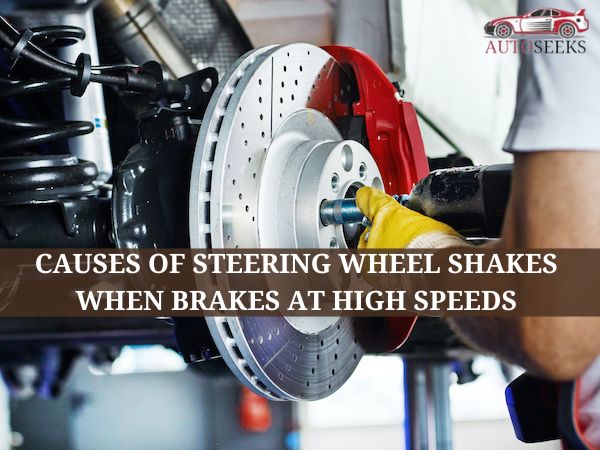There are many reasons behind steering wheel shakes when brakes at high speeds. Warped or unevenly worn front brake rotors (discs) can cause the steering wheel to shake. When braking on a highway at 60 to 70 mph, it’s frequently more prominent. The steering wheel trembles upon braking, there may be other causes, but front brake rotors (discs) that are deformed or unevenly worn are typically to blame.
When braking, brake pads press against a brake rotor or brake disc. When the brakes are applied while moving, the brake force is constant because fresh brake rotors have a homogeneous working surface all around.
The brake force fluctuates as a warped or unevenly worn rotor rotates due to its thicker and thinner regions. The steering wheel trembles when the brakes are engaged because of this variation in brake force. You can experience pulsing in the brake pedal if this occurs. This issue can mostly arrive in compact cars after a prolonged period.

Both the front and rear brake rotors can develop this problem; however, the front rotor issue is more likely to result in trembling in the steering wheel. On the back axle of some cars are drum brakes. Pulsing brake pedals can also be brought on by corroded or warped rear drums.
Table of Contents
Here I’ll show you 5 Main Causes of Steering Wheel Shakes When Brakes At High speeds
A shaking steering wheel when braking is not only annoying, it means something is wrong with the braking or steering system. The tires are a possible cause of jerking when applying the brakes, especially at high speeds on the highway or downhill. Here you read the possible causes of Steering wheel shakes when brakes at high speeds.
1. Out of Balance Tires
2. Brake Pads
3. Brake rotor issues
4. Stuck brake calipers
5. Used Suspension Parts
1. Out of Balance Tires
Tire difficulties should not be unexpected since the steering wheel is utilized to control the wheels. Out-of-balance tires are the primary offenders in this situation. Verify the pressure of each of the four tires. The steering wheel may also tremble due to a deflated tire.
The tire wear should be checked last. Rotate the tires to equal out tire wear if you observe that one side is more worn out. You’re going to need new tires if the tire tread is too worn-out, or tire rotation isn’t an option.
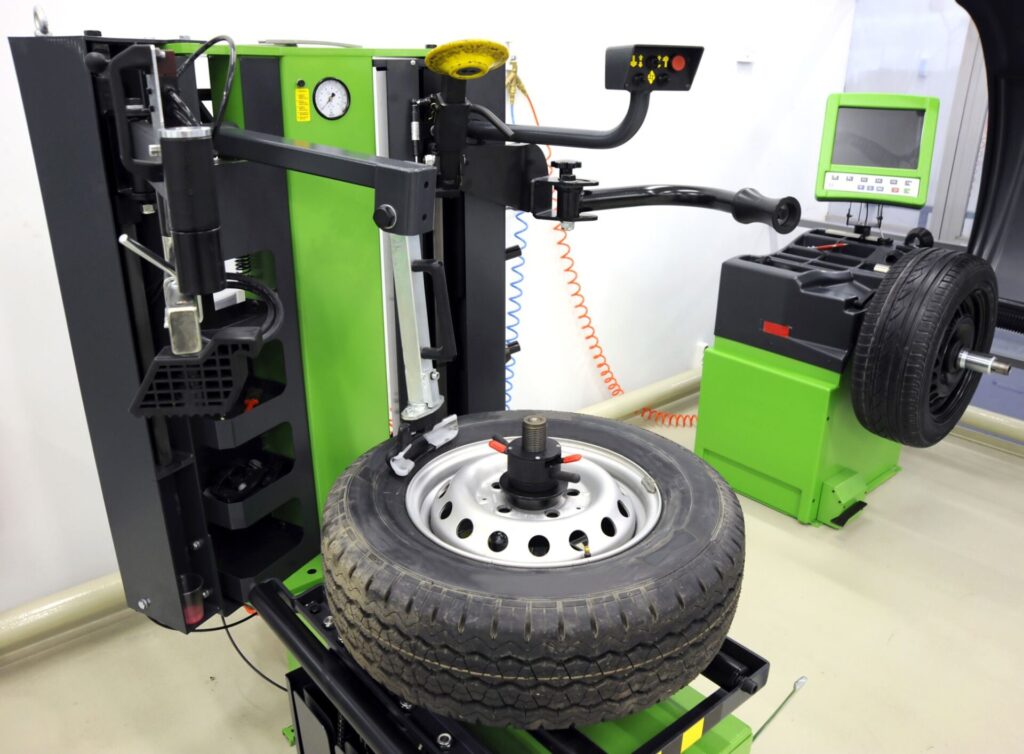
When traveling at moderate speeds as opposed to higher ones, you are less likely to feel the shaking. Shaking is likely to begin when you’re traveling at 50 mph or more, however, it may start to become less obvious after you reach higher speeds.
If your steering wheel shakes when brakes at high speeds excessively, it may be an indication that the wheel bearings, tie rod ends, or ball joints need to be repaired. Make a note of when the shaking happens to assist a mechanic in identifying and fixing this issue.
2. Brake Pads
As is common knowledge, the steering column, the steering rack end, and the steering wheel are all connected to the front brake system via the knuckle arm. As a result, the brake pads themselves are frequently the source of steering wheel trembling when braking if the rotor is still in good condition. They could be misaligned in the caliper or have uneven wear on the brake pads.
3. Brake rotor issues
Have you ever slowed down or stopped your car and felt the steering wheel shakes when brakes at high speeds? This can indicate that your brake rotors are deformed. Your brake pads contact the smooth, flat surface of your braking rotors to slow or stop your motion.
Your rotors’ metal becomes flexible due to the heat produced by friction between the brake pads and rotors. If you don’t maintain regular brake pad replacements, this pressure over time may distort your rotors.
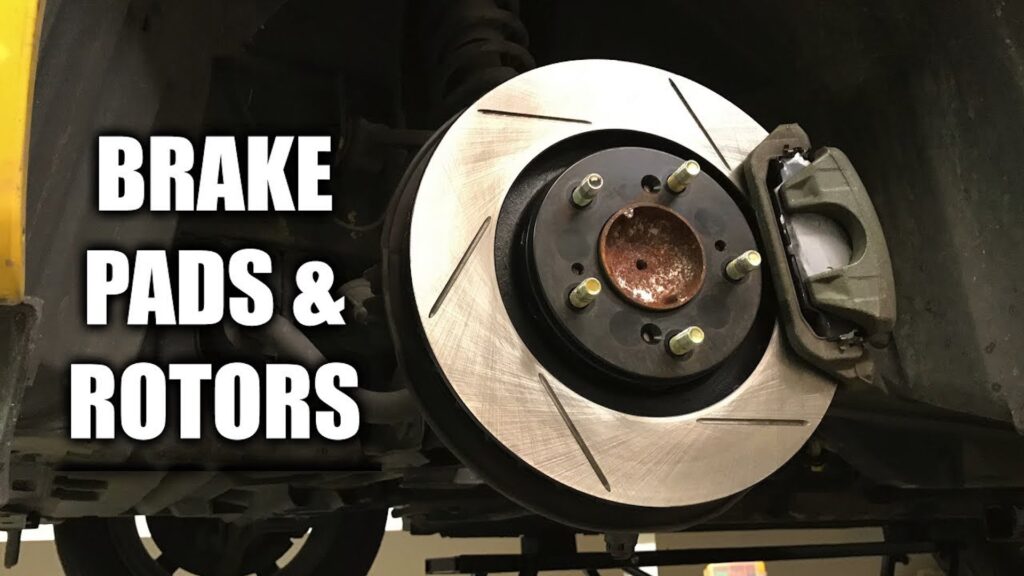
Your rotors will become bent as a result, and when you brake, the brake pads will meet an uneven surface, which will shake the steering wheel. Fortunately, replacing the brake rotors will solve this problem. If you identify this problem in time, your mechanic might even be able to resurface your rotors to restore their smoothness and evenness. It is doubtful that this fix will work if you have previously noticed bending signs, such as the steering wheel wobbling.
4. Stuck brake calipers
Stuck brake calipers are one unusual reason for the steering wheel shakes when brakes at high speeds. Each time you slow down or stop your car, your brake calipers lower the brake pads that they are holding. Although it seldom happens, brake calipers can seize (also known as “sticky” or “stuck”).
Seized brake calipers can affect the handling, frequently resulting in tugging or shaking of the steering wheel. You will notice this problem while driving rather than when you brake, unlike warped rotors.

It can be difficult and detrimental to your car’s engine, braking system, fuel efficiency, tires, and other components to drive with a blocked brake caliper. Wearing hoses, accumulation of debris, and do-it-yourself brake installation are the main causes of sticking brake calipers. Bring it as quickly as you can to a mechanic if you think you might have one.
5. Used Suspension Parts
While driving, issues with the suspension and alignment are also possible, unlike issues with the tires and brake rotors. Older automobiles are more likely than newer ones to shake because of damaged ball joints or tie rods, so if you’ve had the same car for a while, give this some extra thought.
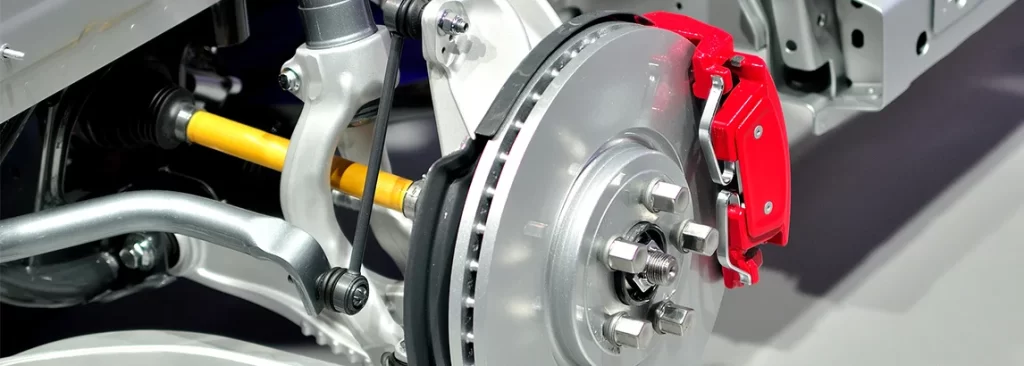
If you get your car above 45 miles per hour or so, you’ll start to experience some intense vibrations since the suspension parts can get loose and develop the play. If that describes what has been happening with your automobile, it is recommended to put it in for service as soon as you can and stop driving it to prevent further damage.
How to Find the Cause of a Shaking Steering Wheel?
The above-mentioned causes of a steering wheel shakes when brakes at high speeds are the most frequent, but they aren’t the only possibilities. Several different engine issues might cause the whole car to shake, but you might only be able to feel the shake through the steering wheel.
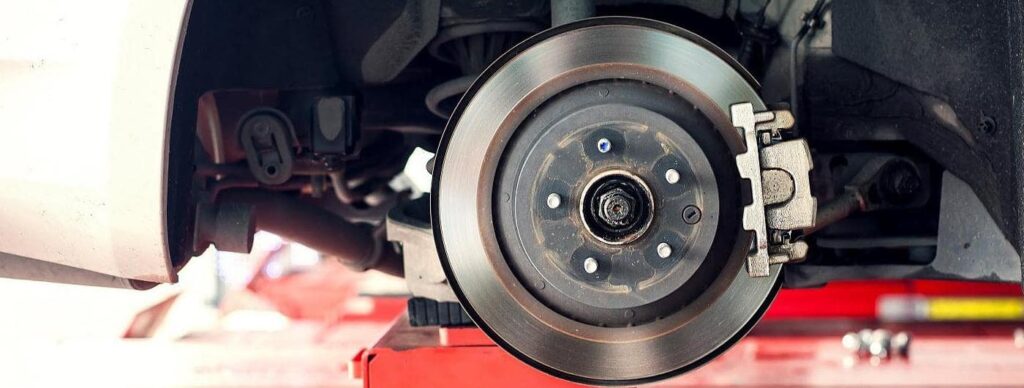
These issues could, among other things, be with the fuel delivery, air intake, or spark systems. It’s a good idea to take your automobile to a qualified repair as soon as possible if, after reading the list above, you’re still unsure of the cause of your steering wheel shaking.
Actions to Take If Your Steering Wheel Shakes
The ideal specific course of action will depend on the issue, but there is one thing you should always do when your steering wheel shakes when brakes at high speeds: get help right away. The indications and symptoms you’re observing could indicate a serious issue that jeopardizes the durability or safety of your car.
FAQ Regarding Steering Wheel Shakes When Brakes At High speeds
Q. 1) Why does my steering wheel shake intermittently?
There are many reasons behind steering wheel shakes when brakes at high speeds. The most likely causes are warped brake rotors, Unbalanced tires, and damaged/worn suspension system parts.
Q. 2) Why does my steering wheel haphazardly jerk at low speeds?
In most cases, the source of steering wheel vibration is the tires, which is correct with a quick tire balance. Under or over-inflation could also cause steering wheel shaking.
Q. 3) Why is my steering wheel shaking at the speed of 70 mph?
The most common reason a car shakes is related to the tires. If the tires are out of balance, the steering wheel may shake. This shaking starts around 50 to 55 miles per hour (mph). It gets worse around 60 mph but starts to improve at higher speeds.
Q. 4) Can alignment compel the steering wheel shakes when brakes at high speeds?
Even slight alignment issues can cause the steering wheel to vibrate or jerk in the car. In addition to steering wheel shaking, wheel alignment issues can lead to uneven and accelerated tire wear.
Conclusion
Many car problems can cause steering wheel shakes when brakes at high speeds. Potentially deep problems can be a high stake for your car. The above-explained indications can help you to resolve the steering wheel shake issue. You require to fix your car before the matter gets out of hand.
- Bad Rack And Pinion Symptoms You Should Never Ignore - February 10, 2026
- How To Fix Exhaust Leak Properly Without Costly Mistakes - February 10, 2026
- Fuel Pressure Regulator Symptoms And How To Spot Failure Early - February 10, 2026

